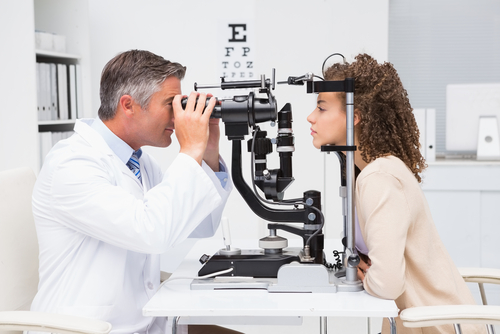
Routine eye exams are a fundamental part of good eye health, whether you have almost perfect vision or need to wear glasses. Eye exams performed by your ophthalmologist or optometrist are the only way to detect vision conditions that could lead to vision loss and other damage to your sight. Here’s what you can do to make the most of your next eye exam.
1. Write Down Your Symptoms
It can be frustrating when you cannot remember questions you wanted to ask during an eye exam. Before your next visit to your eye doctor, write down any symptoms you have and how long you have experienced them. Symptoms to watch for include:
- Eye pain
- Headaches
- Having trouble with close-up vision
- Distorted or blurry vision
- Light flashes
- Colors appearing dull or faded
In addition, keep your eye doctor updated on the latest developments since your previous visit. For example, alert your ophthalmologist or optometrist if you have been diagnosed with any illness or if you are pregnant.
Certain medications, conditions, and illnesses can increase your risk of vision-related diseases and conditions. The more your eye doctor knows about your health, the more personalized your care will be.
2. Do Not Overlook Symptoms Even If They Come and Go Quickly
If you lose vision in one eye, even if it is only for a moment, this is something that you should let your eye doctor know about as soon as possible. Losing vision could be an indication of a serious problem.
Other warning signs that your ophthalmologist or optometrist should be aware of are double vision and floaters.
3. Answer Any Questions Your Ophthalmologist Asks You Honestly
The more information your eye doctor has, the better they can diagnose you and use the right treatment approach. If you smoke, let your eye doctor know about this.
Cigarettes increase your likelihood of developing eye conditions like age-related macular degeneration and cataracts. Your ophthalmologist or optometrist needs to know whether you are at risk. That way, they can protect your vision.
4. Take Note of Your Current Prescriptions
Whether it is medication for an existing eye condition or something as simple as eye drops you bought from the local drug store, bring them to your appointment.
Any prescriptions you take will provide insights to your eye doctor into how your eyes are working and your overall health. More importantly, it will ensure that any medications they prescribe will not counteract any current prescriptions you already take.
You can also ask your eye doctor about any potential side effects that your medications may cause.
5. Bring Your Sunglasses with You
Sunglasses are not just fashion accessories. A good pair can help block 99% or more of UV rays from the sun. Ultraviolet rays from the sun can harm your eyes, increasing your risk of age-related macular degeneration, cataracts, and eye cancer.
If your pair of sunglasses doesn’t offer adequate protection, your eye doctor can recommend better sunglasses that will protect your eyes.
Receive Expert Eye Exams at Grand Rapids Ophthalmology
Frequent eye examinations are the best way to protect your vision and catch early warning signs of eye conditions and diseases. At Grand Rapids Ophthalmology, our team of eye doctors uses leading-edge technology and state-of-the-art equipment during all eye exams.
Schedule an Appointment
Schedule an appointment today to experience the GRO difference. Call 616.588.6598 or click here.





















